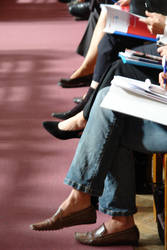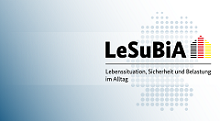Research Cooperations and Networks

Research Cooperations and Networks
As a modern research and advisory institution, the OIF attaches great importance to networking with international cooperation partners. For the first time, the institute positioned itself throughout Europe by coordinating the European Observatory on the Social Situation, Demography and Family from 1998 to 2004. The Observatory, established by the European Commission, comprised 15 national experts from the respective EU member states.
Ongoing requests are made to OIF staff to hold lectures and events at universities and non-university institutions.
Below you will find the networks we are currently active in:
Editorial Board of the Journal of Family Research
Eva-Maria Schmidt will be part of the Editorial Board of the Journal of Family Research (JFR) at the University of Bamberg, starting with June 2024.
The Journal for Family Research publishes research on the diverse aspects of family life. Disciplines represented in the journal include sociology, (social) demography and others in which family and population are a common theme. The journal publishes original research articles, using quantitative, qualitative or mixed methods.
LeSuBiA – Lebenssituation, Sicherheit und Belastung im Alltag
The cross-gender population survey on violence in Germany aims to investigate the dark field in the area of violent incidents. It collects information on the experiences, attitudes and behaviour of respondents on this topic as well as information on socio-structural characteristics and their living environment. A research advisory board was set up to provide scientific support for the project, which includes Olaf Kapella, an expert from the ÖIF, as well as experts from the fields of violence, gender and survey research, victim support and medicine.
International Network on Leave Policy & Research
This network was founded in 2004, and a group of experts from 25 countries deals with the issues of reconciling family and work, maternity leave models and their political framework conditions.
Generations and Gender Programme (GGP)
The „Generations and Gender Programme“ (GGP) of the United Nations (UNECE) was developed for the consistant and systematic recording of family demographic issues. It consists of a panel programme with several survey waves in the participating countries and an internationally harmonised database with demographically, sociologically and economically relevant macro indicators. In the survey, particular reference is made to the parent-child relationship (generational aspect) as well as the gender relationship (gender aspect).
Family Research Section of the Austrian Sociological Association
The purpose of the Section on Family Research is to provide a networking platform for Austrian family researchers and to promote, encourage, and support research on the manifold aspects of “family” and intimate lives. By providing a newsletter, running a website, and regularly organising conferences and publications, it fosters the Austrian scientific discourse and the exchange of ideas and results. Furthermore, it aims to be contact point for non-scientific institutions or actors working in family-relevant fields.
OIF-staff member Eva-Maria Schmidt functions as spokesperson for the section.
World Health Organization (WHO)
The OIF is represented in an initiative that was founded by the WHO Regional Office for Europe in 2008 and has since been supported by the Federal Centre for Health Education (BZgA), a WHO Collaborating Centre for Sexual and Reproductive Health, in close cooperation with a European expert group. The expert group comprises 19 experts from nine Western European countries with a wide range of educational and research backgrounds, from medicine to psychology to social sciences.
The latest publications on the Standards for Sexuality Education in Europe
European Congress for Family Sciences
The central idea of the European Congress for Family Sciences is the Europe-wide networking of family research and all actors from practice, politics and research. Since 1997, the European Congresses have been organised jointly by the State Institute for Family Research at the University of Bamberg (ifb), the Federal Institute for Population Research (BiB) and the Austrian Institute for Family Studies (OIF) at the University of Vienna.







